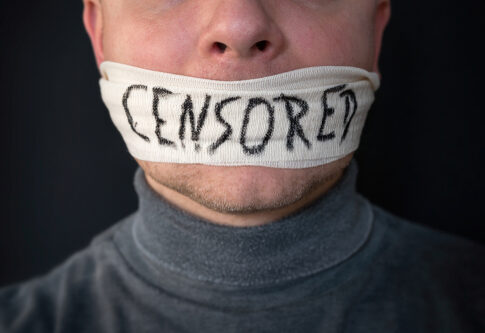A new survey from the Freedom Forum reveals that public support for the First Amendment, which guarantees core freedoms such as speech, religion, and assembly, is waning across the United States. According to the report, only 58% of Americans would approve of the First Amendment today, reflecting a noticeable four-point drop from 2020. This decline comes as debates around free speech and other civil liberties intensify amid increasing polarization.
The survey, conducted between July and August 2024, also highlights that more than half of Americans view free speech as a significant factor in how they will vote in the upcoming November elections. In regions like the Northeast, 52% of respondents noted the relevance of First Amendment rights to their voting decisions. This issue resonates less in the Midwest, where only 49% felt similarly.
Actor and comedian @RobSchneider calls on all Americans to defend their First Amendment rights: "The Democrats don't want free speech." pic.twitter.com/PCzmvttNsl
— Fox News (@FoxNews) September 20, 2024
Interestingly, Americans are sharply divided on which political figures pose the biggest threats to these freedoms. Former President Donald Trump was seen by 49% as a threat to First Amendment protections, while 37% held the same view regarding Vice President Kamala Harris. These perceptions seem to reflect broader generational and economic divides. Baby boomers, for instance, are more likely to view Trump as a danger to civil liberties, while individuals earning between $60,000 and $100,000 are more concerned about Harris.
The survey also found an alarming trend in how Americans navigate their speech in today's climate. Many people self-censor, with over 50% of respondents admitting they have refrained from sharing political opinions for fear of provoking violent confrontations. Additionally, around 46% said they avoided political discussions to prevent conflicts with family and friends, while a quarter of those surveyed feared workplace repercussions for expressing their views.
The Governor of California signed a bill that could make posting memes & parody illegal. This goes against the Constitution & the First Amendment.
What’s happening in California will happen across all of America if Kamala wins. Free speech is at risk! pic.twitter.com/wBOUYTByMj
— DogeDesigner (@cb_doge) September 18, 2024
Campus protests and their impact on free speech were another focal point of the survey. Americans remain deeply divided on how far protests should go. While 72% of respondents support peaceful campus protests, they oppose actions like occupying buildings. Younger Americans, particularly Gen Z, were much more open to such tactics compared to older generations.
Religious freedom, a cornerstone of the First Amendment, also generated mixed reactions. The survey found that a narrow majority, 54%, believe Christian values should not be given preferential treatment, but a sizable minority remained unsure or supported special protections for Christianity. This issue has gained prominence following legislation such as Louisiana's recent mandate to display the Ten Commandments in public schools, which has sparked a broader conversation on the role of religion in public life.
Further complicating matters, misinformation and social media restrictions were highlighted as growing concerns. Around 33% of respondents believe that deepfake videos should be labeled or restricted, while only 29% of Gen Z participants felt the government should have the authority to ban social media platforms over national security concerns. Baby boomers, by contrast, were nearly twice as likely to support such government interventions.
Despite these divisions, the survey reaffirms that the First Amendment remains vital to a vast majority of Americans. However, the nation's understanding and prioritization of these rights appear increasingly fragmented along lines of age, race, and class. As the 2024 election approaches, free speech and other First Amendment rights will likely continue to shape the political landscape, with many voters making decisions based on their perceptions of which candidates are most committed to protecting these freedoms.


